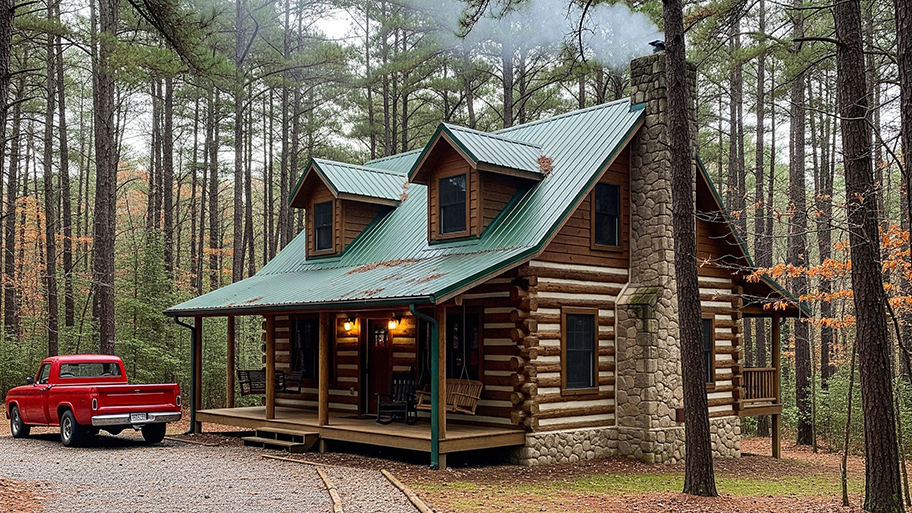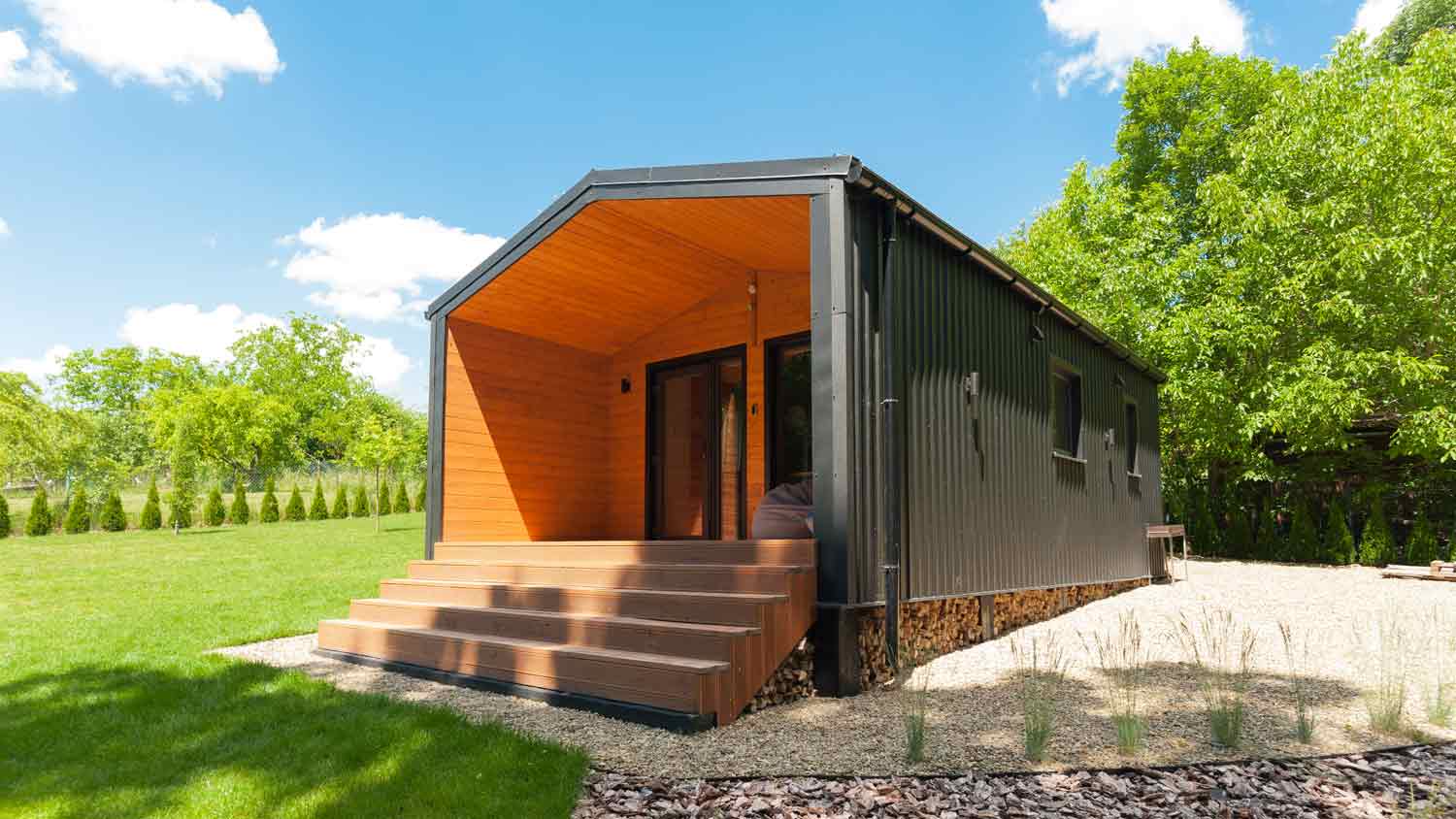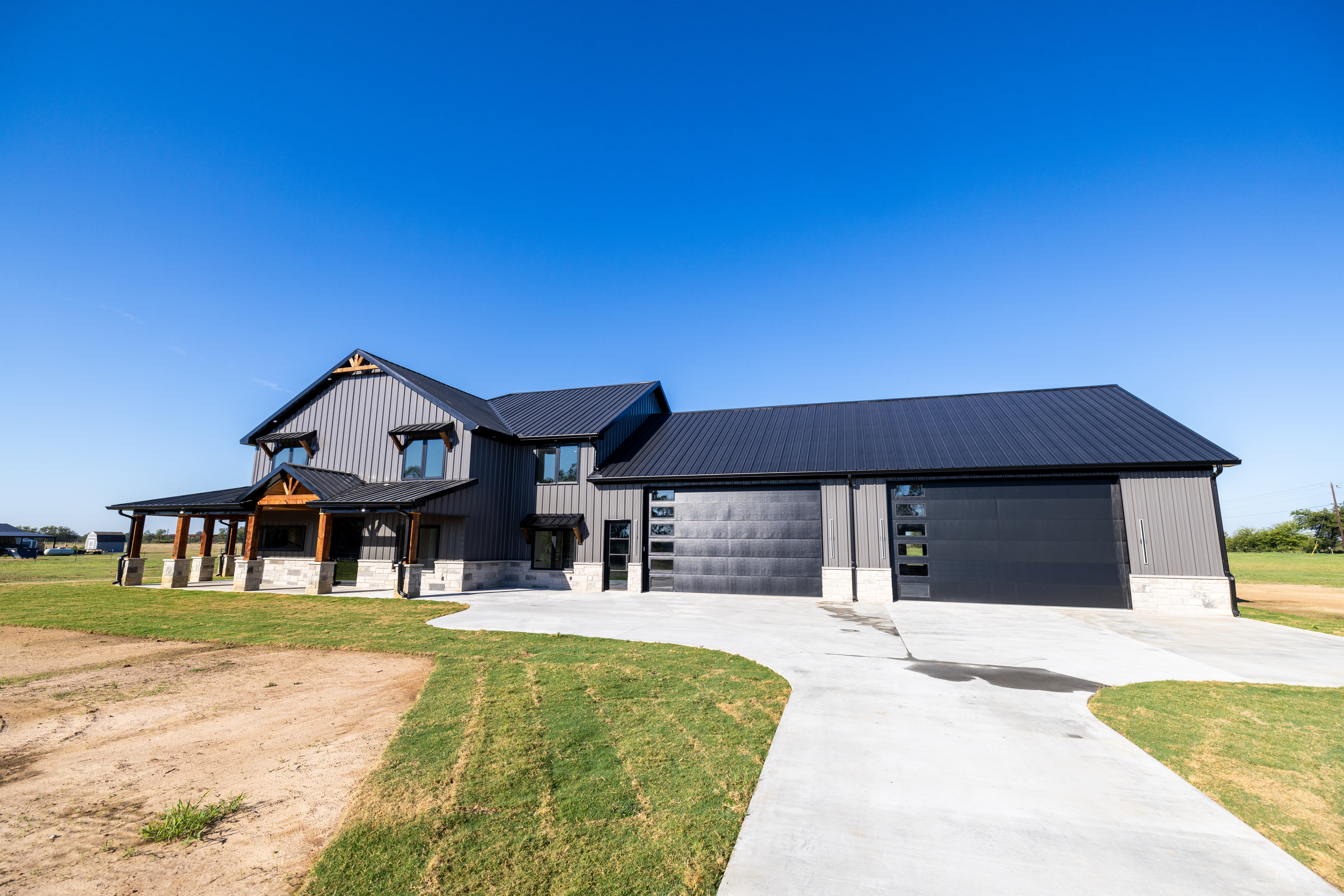
While it isn't easy to expand your property, you can consider building up. The cost of adding a second story has quite the range. We'll break it down here.
Home building costs depend on your project and location. Check with a local pro for your specific job.
The average cost to build a cob house is $180,000, with most homeowners spending between $120,000 and $250,000, and national costs ranging from $60,000 to $350,000.
Cob houses typically cost $150 to $450 per square foot, depending on size, materials, design complexity, and labor.
Some beginning project phases include foundation which runs $8,000 to $25,000, walls costing $20,000 to $80,000, and roof installation between $15,000 and $45,000.
Windows and doors average $7,000 to $20,000, while additional interior finishes cost between $10,000 and $40,000.
Pro costs vary, with general contractors charging 10–20% of the total project cost, cob builders $35 to $75 per hour, and licensed electricians or plumbers $70 to $150 per hour.
This article was created using automation technology and thoroughly fact-checked and edited by an Angi Editor in accordance with our AI policy.
The average cob house costs $180,000, with most projects ranging from $120,000 to $250,000. Expect to pay between $150 and $450 per square foot, depending on the design, materials, and labor. Let’s break down what goes into building your dream cob home.
Building a cob house is important because it provides a sustainable and energy-efficient alternative to conventional homes. This guide covers everything you need to know about costs, so you can plan with confidence and avoid surprises along the way.
Understanding the cost of building a cob house involves examining every stage of the project. The total price encompasses materials such as clay, sand, straw, timber, and finishes, as well as labor, site preparation, permits, utilities, and final touches. Most homeowners spend between $60,000 and $250,000 for a standard cob house, but your final price depends on the choices you make at each step.
Cob houses tend to cost more per square foot than basic conventional homes, largely because of the specialized labor involved and the custom nature of most cob projects. However, you can save on ongoing energy costs, and many people find the unique, eco-friendly design worth the initial investment.
Key cost factors include the size of the home, architectural complexity, the amount of labor required, your location, and whether you hire a general contractor or take on some work yourself. Here’s a breakdown of major project phases and their estimated costs:
| Project Phase | Description | Average Cost Range |
|---|---|---|
| Foundation | Excavation, footings, slab, or rubble trench | $8,000–$25,000 |
| Walls | Cob mixing, wall building, sculpting, drying | $20,000–$80,000 |
| Roof | Framing, insulation, and roofing materials | $15,000–$45,000 |
| Windows/doors | Custom or energy-efficient installation | $7,000–$20,000 |
| Interior finishes | Plaster, flooring, built-ins, paint, cabinetry | $10,000–$40,000 |
| Utilities | Electrical, plumbing, septic/water hookup | $10,000–$40,000 |
Each phase includes materials and labor. Custom features, high-end finishes, or off-grid systems will raise costs.
The size of your cob house has a direct impact on the total cost. Smaller cottages are more affordable, while larger family homes or custom designs push the budget higher. Most cob homes range from 400 to 1,500 square feet, but some ambitious builds go well beyond that.
The cost per square foot for cob construction ranges from $150 to $450, depending on the design, location, and labor choices. Here’s how costs break down by home size:
| Home Size (Sq. Ft.) | Description | Average Total Cost |
|---|---|---|
| 400 | Small cottage or studio | $60,000–$120,000 |
| 1,000 | Standard two-bedroom home | $120,000–$200,000 |
| 1,500 | Family home with custom features | $180,000–$250,000 |
| 2,000 | Large custom cob house | $240,000–$350,000 |
Keep in mind that increasing square footage not only raises material costs, but also the amount of labor, time, and finishing work required.
Bringing in professionals for your cob house build ensures quality, code compliance, and a smoother project. Here’s a closer look at the main pros involved and what they charge:
General contractor: A general contractor oversees the entire project, from permits to scheduling and managing subcontractors. General contractor fees are often 10% to 20% of the total project cost, or $15,000 to $50,000 for most cob homes. They handle logistics, inspections, and coordination, which can save you headaches and costly mistakes.
Cob builder or mason: Specialized cob builders are skilled in mixing, sculpting, and constructing cob walls. Expect to pay between $35 and $75 per hour, or between $20,000 and $80,000 for wall construction alone, depending on the project size and complexity. Their expertise is key for structural integrity and aesthetic finishes.
Licensed electrician or plumber: Installing safe, code-compliant electrical and plumbing systems in a cob house requires pros. Electricians and plumbers charge $70 to $150 per hour, with total costs of $10,000 to $40,000 for a full build. They handle wiring, outlets, fixtures, and ensure everything passes inspection.
Labor rates can vary widely by region, so it’s wise to get several quotes before hiring.
Depending on your design and needs, you may need to bring in other specialists to complete your cob house:
Architect or designer fees: $2,000 to $15,000 for custom plans and code compliance.
Structural engineer costs: $1,500 to $7,000 to ensure your cob walls and roof are safe and stable.
HVAC specialist: $3,000 to $15,000 for heating/cooling system design and installation, especially if you want radiant floors or high-efficiency systems.
Roofing contractor: $5,000 to $20,000 for installing the roof structure and materials.
Window and door installer: $3,000 to $8,000 for energy-efficient units.
Site prep or excavation contractor: $2,000 to $10,000 for clearing land, grading, and preparing the foundation.
Interior finish carpenter: $2,000 to $12,000 for custom shelving, cabinetry, or built-in furniture.
Hiring these pros helps ensure your cob house is comfortable, safe, and built to last.
Where you build your cob house has a big impact on the final price. Regional differences in labor rates, material costs, and permit fees can swing your budget up or down. Local climate and building codes can also add complexity and increase costs, especially in areas with strict regulations or severe weather conditions.
Urban areas tend to have higher labor costs, whereas rural locations often offer savings on land and certain services. However, remote sites can increase transportation and utility hookup expenses. You can check with local building officials and experienced cob builders in your area for the most accurate estimate.
Several other expenses can impact the cost of building a cob house. Beyond the basics, you’ll need to budget for taxes, insurance, warranties, and any custom features or upgrades. Accessibility changes, repairs, and post-construction cleanup can also add to your total.
If you’re building on a lot with existing structures, you’ll need to factor in demolition. Removing an old house, shed, or foundation costs between $5,000 and $20,000, depending on its size and the amount of debris. Site clearing, grading, and soil testing costs $2,000 to $10,000. Proper prep ensures your cob house sits on solid, well-drained ground.
Building a cob house requires several permits, including building, zoning, electrical, and plumbing. Your general contractor can often handle this, but if you’re DIYing, the responsibility is yours. Permit fees range from $2,000 to $10,000, depending on the location and scope of your project. Inspections are part of the process and help ensure your home meets local safety codes.
Staying on top of permitting is essential—skipping this step could mean costly delays or even having to redo work.
Hiring a local pro for building a cob house costs more upfront, but you benefit from proper construction techniques, structural stability, and efficient project management. Pros bring the right tools—such as trowels, mixers, scaffolding, and finishing tools—and the experience needed to work with natural materials without compromising the integrity of the structure.
Pros know how to mix and apply cob efficiently while ensuring proper consistency, moisture content, and layering, which is critical for the strength and durability of the walls
They handle construction in accordance with local building codes and safety standards, reducing the risk of structural issues or regulatory complications.
Hiring a pro reduces the risk of uneven walls, cracking, or improper curing that could compromise the longevity and performance of the house.
Many contractors can bundle services such as foundation preparation, roof installation, and finishing work, helping streamline the entire cob house building project.
If you already own a cob house, consider a remodel or renovation. Renovating often means repairing walls, updating finishes, or restoring original features. Remodeling is a more extensive process, often involving the addition of rooms, changes to the layout, or upgrades to major systems.
Renovations are often less expensive, costing between $10,000 and $50,000, depending on the scope of work. Complete remodels, especially those involving structural changes, can cost $40,000 to $120,000 or more. The age of your home, the extent of changes, and structural limitations all play a role.
Remodels may require new permits, more time, and a bigger budget, but can dramatically improve your home’s comfort and value.
Here are a few helpful tips to keep costs down when building a cob house:
Source local or recycled materials to cut transportation and purchase costs.
Simplify your design and floor plan to minimize labor and materials.
DIY certain phases, like wall building or plastering, to save on skilled labor.
Hire professionals only for specialized or code-required tasks, such as electrical or plumbing work.
Plan for energy efficiency with passive solar design and high-quality insulation to reduce long-term utility costs.
Shop around for permits and professional quotes to find the best value.
Utilize volunteer labor or organize community-building events to offset labor costs.
Building a cob house can enhance your property value, particularly in areas where sustainable living is highly valued. Cob homes offer excellent energy efficiency, low maintenance, and a unique design—all of which appeal to certain buyers. However, resale value can be harder to predict than with conventional homes.
Factors such as location, energy performance, and custom features impact ROI. Cob homes may be more marketable in eco-conscious regions, but could face challenges with appraisal or financing. Insurance can be more complex, and not all lenders are familiar with construction methods such as cob. Still, a well-built cob house with modern amenities can command a premium in the right market.
Let your builder know the size, layout, and number of rooms you plan for the cob house, so they can plan for the right materials, labor, and construction timeline.
Describe any underlying site issues you’ve noticed, like soil quality, drainage problems, or slope challenges, that could affect construction or require additional preparation.
Ask whether you need to prep the site beforehand, such as clearing vegetation, leveling the ground, or sourcing cob materials.
Confirm whether unexpected costs could arise from issues like structural reinforcements, custom design features, or difficulty sourcing materials.
If you’re considering additional work—like installing natural insulation, finishing with plaster, or adding water or solar systems—ask whether it’s more efficient to bundle those services with the cob house construction.
Home is the most important place on earth, which is why Angi has helped more than 150 million homeowners transform their houses into homes they adore. To help homeowners with their next project, Angi provides readers with the most accurate cost data and upholds strict editorial standards. We extensively research project costs to develop the pricing data you see, so you can make the best decisions for you and your home. We rely on reputable sources, including the U.S. Bureau of Labor Statistics, academic journals, market studies, and interviews with industry experts—all to ensure our prices reflect real-world projects.
Want to help us improve our cost data? Send us a recent project quote to [email protected]. Quotes and personal information will not be shared publicly.
From average costs to expert advice, get all the answers you need to get your job done.

While it isn't easy to expand your property, you can consider building up. The cost of adding a second story has quite the range. We'll break it down here.

Log cabin costs vary depending on the size of the cabin, the location, and the cabin style. This guide will help you figure out the true cost of a log cabin.

Get transparent shed repair cost info so you can learn average prices, cost factors, and ways to save on shed repairs for your home.

Prefab and modular homes have a lot in common, but also some key differences. Learn about prefab vs. modular homes and which is the best choice for you.

Barndominiums combine the comforts of home with rural living. Compare the pros and cons of barndominium homes to see if one is right for you.

Unsure of your home’s beginnings? This guide explains how to find the builder of a home, so you can work your way through until you find the info you need.